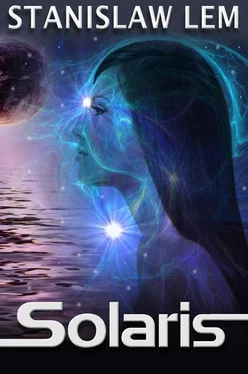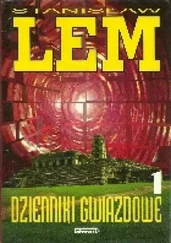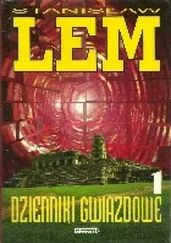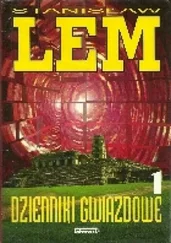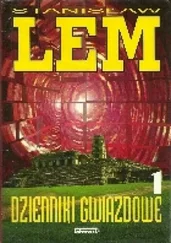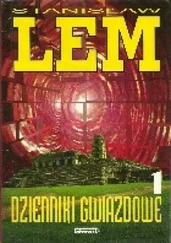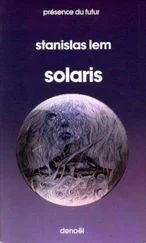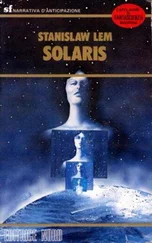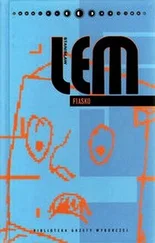So much for the mathematicians. These hypotheses were regarded by some as an underestimation of human capability, as an obeisance toward something we didn’t yet comprehend, but which could be understood as a resurrection of the old doctrine of ignoramus et ignorabimus —“we do not know and will not know.” Others saw these as harmful, sterile fairy stories, and claimed the mathematicians’ hypotheses revealed a latter-day mythology that saw an immense brain — whether electronic or plasmic — as the highest goal of being, the sum total of existence.
While others yet… but scientists and opinions were legion. Besides, all the attempts at “establishing contact” were nothing compared to other branches of solaristics, in which specializations grew so advanced a cybernetician was barely able to communicate with a symmetriadologist. Veubeke, who at the time, during my studies, was director of the Institute, once jokingly asked: “How can you communicate with the ocean if you can’t communicate with each other?” His jibe contained much truth.
For it wasn’t by accident that the ocean had been classed as a Metamorpha . Its undulating surface was capable of giving rise to the most diverse formations that bore no resemblance to anything terrestrial, on top of which the purpose — adaptive, cognitive, or whatever — of those often violent eruptions of plasmic “creativity” remained a total mystery.
Returning the volume to the shelf — it was so heavy I had to lift it with both hands — I thought to myself that what we know about Solaris, all the knowledge that filled this library, was useless ballast, a mere quagmire of facts, and that we were in the same position as when we’d started to gather this information seventy-eight years ago; in fact, the situation was a lot worse, since all the labors of those years had proved to be in vain.
That which we knew in detail contained nothing but contradictions. The ocean did not employ machines or construct them, though in certain circumstances it seemed capable of doing so, since it copied components of some of the devices lowered into it. But it did so only in the first two years of the exploratory research; after that, with boundless patience it ignored repeated attempts, as if it had lost all interest in our instruments and artifacts (and thus, it seemed, in us). To continue with our “negative knowledge,” it did not possess a nervous system, or cells, or any structure resembling protein. It didn’t always respond to stimuli, even the most powerful (for instance, it completely “ignored” the disaster involving the auxiliary rocket ship of Giese’s second expedition, which plummeted from a height of two hundred miles to the surface of the planet, destroying plasma for a mile and a half around when its atomic piles exploded).
In scientific circles the “case of Solaris” gradually began to sound like a lost cause, especially among the academic leadership of the Institute, where in recent years voices had been raised calling for cuts in future research funding. No one yet dared suggest closing down the Station completely; this would be too overt an admission of failure. Though some, at least privately, said that all we needed was a strategy for as “honorable” a retreat as possible from the “Solaris affair.”
But for many, especially young people, this “affair” eventually became something of a touchstone of one’s own worth. “In essence,” they would say, “the stakes are higher than exploring the civilization of Solaris; this is about us ourselves, about the limits of human cognition.”
For some time one popular view, eagerly disseminated by the press, was that the thinking ocean covering the whole of Solaris was a gigantic brain more advanced by millions of years than our own civilization, that it was some kind of “cosmic yogi,” a sage, omniscience incarnate, which had long ago grasped the futility of all action and for this reason was maintaining a categorical silence towards us. This was simply untrue, because the living ocean certainly does act — it’s just that it does so according to notions other than those of humans, it doesn’t build cities or bridges, or flying machines; it doesn’t try to conquer space or cross it (something defenders of human superiority insisted on seeing as an invaluable trump card for us). Instead, it occupies itself with thousand fold transformations—“ontological autometamorphosis” (there was no lack of learned terminology in the literature on Solaris!). Since, on the other hand, anyone plunging stubbornly into all this literature cannot resist the impression that though he encounters fragments of perhaps brilliant intellectual constructions, these fragments are mixed indiscriminately with the products of utter foolishness bordering on insanity, as an antithesis to the concept of the “oceanic yogi” there arose the idea of the “oceanic idiot.”
These hypotheses resuscitated one of the most ancient of philosophical problems — the relationship between matter and consciousness. It took a fair amount of courage to lead the way, like du Haart, in attributing consciousness to the ocean. This problem, which the methodologists over-hastily classified as metaphysical, smoldered beneath virtually every discussion and dispute. Was thinking without consciousness possible? Yet could the processes that took place in the ocean be regarded as thought? Is a mountain a very large rock? Is a planet a huge mountain? These terms can be used, but the new scale of magnitude brings with it new regularities and new phenomena.
This problem became a squaring of the circle for our times. Every independent thinker strove to make his own contribution to the treasury of solaristics. Theories multiplied. They claimed we were dealing with the result of a degeneration or regression that had set in after the period of the ocean’s “intellectual splendor”; or that the ocean was in fact a neoplasmic glioma which, having come into existence within the bodies of former inhabitants of the planet, had consumed them all and swallowed them up, fusing the remains together in the form of an everlasting, self-rejuvenating, supracellular element.
In the white glow of neon lamps that was reminiscent of terrestrial light I removed the instruments and books from the table and, spreading a map of Solaris on the plastic surface, I leaned over it, my hands resting on the metal trim. The living ocean had its shallows and its trenches, while its islands were coated with a deposit of weathered minerals that showed they had once constituted its bottom. Did it also regulate the rise and fall of the rock formations immersed in its utterly dark bosom? I gazed at the massive hemispheres on the map, colored in various shades of purple and pale blue. I felt, as countless times before in my life, a sense of wonder just as thrilling as the first time, when as a boy I had learned at school about the existence of Solaris.
I don’t know how it came about that my surroundings — including the lurking mystery of Gibarian’s death, even my own unknown future — all suddenly seemed unimportant, and I thought about nothing whatsoever as I pored over the map, which any human would have found overwhelming.
The various areas of the living formation were named after scientists who had dedicated their lives to exploring them. I was studying the Thexall gliamassif that flowed around the equatorial islands, when I felt someone’s eyes on me.
I was still standing over the map, but I no longer saw it, it was as if I were paralyzed. The door was straight in front of me; it was barricaded with crates, plus I’d pushed a locker against them. Must have been an automat, I thought to myself, though there hadn’t been any in the room before, and none could have come in without my noticing. The skin on my back and the nape of my neck began to tingle, the feeling of a hard, motionless gaze was becoming unbearable. I didn’t realize that as I shrank my head into my shoulders I was leaning more and more heavily on the table; in the end it began to move slowly across the floor, and it was this movement that seemed to free me. I turned around abruptly.
Читать дальше
